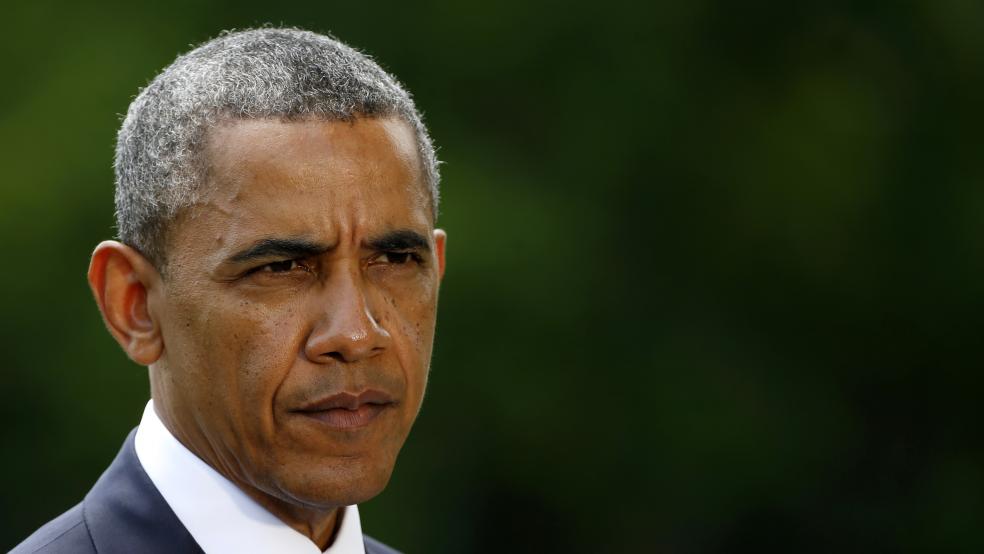President Obama’s decision to send extra security to the American embassy in Baghdad involves memories of three other tragedies at embassies - one in Saigon, one in Tehran, and one in Benghazi.
As the Islamic State of Iraq and Syria (ISIS) moves closer to Baghdad, the State Department announced that 100 Marines and soldiers would be sent to the American compound - the largest in the world, with 5,000 people working there - to beef up security. The move also comes as the terror group claims responsibility for the execution of 1,700 Iraqi Shia air force recruits in Tikrit.
Related: U.S. Watches As Iraq Speeds Toward Disaster
“‘Overall, a substantial majority of the U.S. Embassy presence in Iraq will remain in place and the embassy will be fully equipped to carry out its national security mission,” State Department spokeswoman Jen Psaki said.
The most obvious parallel to the decision to move more American troops to a besieged embassy is Saigon in 1975. Just as in Iraq, the American public had grown tired of the Vietnam War and wanted it over. Also, the embassy in Baghdad is threatened by an enemy that the United States had been unable to defeat, just as Saigon’s embassy was threatened by the Viet Cong years after the war began.
It remains to be seen whether the final result will be parallel. In Saigon, the Americans were forced to evacuate the embassy as Viet Cong troops took the city.
The move also raises memories of the fall of the American embassy in Tehran in 1979. The United States was unprepared when students backing the Iranian revolution stormed the embassy, taking 66 hostages who were held for 444 days.
Related: Could Hillary Clinton Have Prevented the Crisis in Iraq?
The hostage crisis arguably cost Jimmy Carter the White House in 1980. They also marked a low point for American standing abroad and usher in the Reagan revolution that eventually won the Cold War.
The most modern parallel, and the one that’s freshest in the American public’s mind, is the continued controversy over an attack of an American outpost in Benghazi, Libya that took the lives of Ambassador Chris Stevens and three other Americans.
Republicans have long accused the White House of not sending additional security and claim that Stevens requested in far in advance of the 2012 attack. They continue to insist that 2016 Democratic frontrunner Hillary Clinton did not do enough to protect the consulate.
“If she wants to be commander-in-chief, she needs to answer why she didn’t provide security leading up to the attack in Benghazi,” Sen. Rand Paul, a 2016 GOP presidential contender, said in an interview on Aaron Klein’s radio show Sunday night. “I asked her what I think is the most important question. I said, ‘In the six months leading up to the attacks in Benghazi, did you read the cables from the ambassador asking for more security?’ And she said, ‘No.’”
Related: How Saddam Hussein Made the Middle East Stable
“That answer to me precludes her from ever being considered for commander-in-chief because Libya had to be one of the most dangerous places in the world,” Paul added. “Couldn’t be two or three countries more dangerous than Libya. Maybe no country. And she wasn’t reading the requests for security, repeated requests for security. For a plane. For a security team. That to me is a dereliction of duty and I think it precludes her from being considered.”
At the very least, the White House can now claim that it recognized the threat to Baghdad’s embassy early, and if their strategy is right, the compound will not meet a fate similar to those in Saigon, Tehran and Benghazi.
Top Reads from The Fiscal Times
- Why Vietnam Will Be the Next Nuclear State
- Japan’s Pivot Away from the West Leads Back to China
- Obama’s Former Syria Ambassador Slams U.S. Policy





